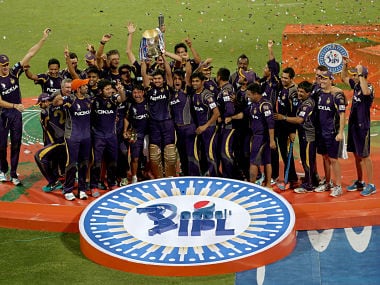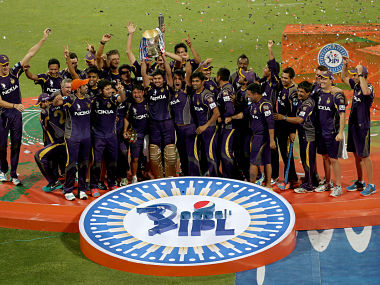Dave Richardson, the ICC’s chief executive, has finally admitted what has been staring all of us in the face for some time. With a few exceptions, bilateral series, the traditional lifeblood of international cricket, is falling out of favour. “Apart from series such as the Ashes - which has an iconic, traditional status - and series between India and the top Full Members, many bilateral series are perceived as having little relevance,” Richardson told ESPNcricinfo in London. “Attendances in most series, especially for Test cricket, have fallen and the revenues generated from these series are not growing.” [caption id=“attachment_2373830” align=“alignleft” width=“380”]  The glitz and fanfare of the IPL - and its other domestic T20 counterparts - is threatening the future of bilateral series. Photo: BCCI[/caption] The reason doesn’t require much searching to find: the rise of Twenty20 leagues around the cricketing world coupled with the corresponding slide in the quality of Test cricket. “The international cricket landscape has changed over the years and even more significantly in recent times with the advent and success of domestic Twenty20 leagues such as the IPL, the Big Bash and the CPL. These events are attracting widespread support from fans and hence the interest of broadcasters, sponsors and other commercial partners.” For Richardson, the solution is to provide context and market the series better, as if a battle between bottom-feeding teams would generate interest if you trumpet it loudly enough. The problem isn’t as much a lack of context – thought context would help – but a lack of quality. There are more international teams that play average or poor quality cricket than those who play good quality cricket. At this moment in time, only South Africa consistently plays high quality Test cricket. Australia and England are on-again, off-again, as is India. Sri Lanka are going to struggle now that Mahela Jayawardene has retired and Kumar Sangakkara has one foot out the door as well. Pakistan can’t play at home; West Indies are a pale shadow of the pale shadow of what they once were and Zimbabwe cricket has regressed under the weight of the country’s myriad problems. New Zealand and Bangladesh are on the rise but neither country has the economic foundation to support a large enough pool of players. No matter the context, very few fans will want to watch Zimbabwe play West Indies (for example), when they know the cricket will most likely be poor. It’s the same reason why bad movies make no money - because they are bad; not because they weren’t marketed better. And that’s a problem the ICC isn’t currently set-up to address. In fact, if anything, the ICC’s consolidation of power in the Big Three means cricket is set-up to protect the haves from the have-nots. Given the Big Three’s hold on ICC revenues and the lack of funds from bilateral series, the only way for the so-called lesser countries to make money is either to play India in a series or set up their own T20 leagues. The opportunity to play India doesn’t come along very often – just ask Bangladesh – and India will naturally prefer to play higher-profile opponents such as South Africa and Australia, so that leaves – you guessed it – more T20 leagues as the only way out for counties that need to see the money to keep the game alive. If the ICC was serious about protecting Test cricket, it would not only add context to these series – as many have called for – it should also re-examine its funding priorities so that cricketing boards in smaller countries can invest in their players – both in terms of developing their skills and providing them a comfortable living. Otherwise, the emperor is going to continue to wear no clothes, no matter how much the ICC tries to dress it up with words.
If the ICC was serious about protecting Test cricket, it would not only add context to these series – as many have called for – it would also re-examine its funding priorities.
Advertisement
End of Article
Written by Tariq Engineer
Tariq Engineer is a sports tragic who willingly forgoes sleep for the pleasure of watching live events around the globe on television. His dream is to attend all four tennis Grand Slams and all four golf Grand Slams in the same year, though he is prepared to settle for Wimbledon and the Masters. see more


)

)
)
)
)
)
)
)
)



